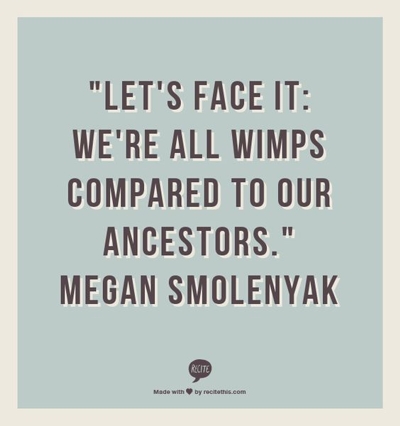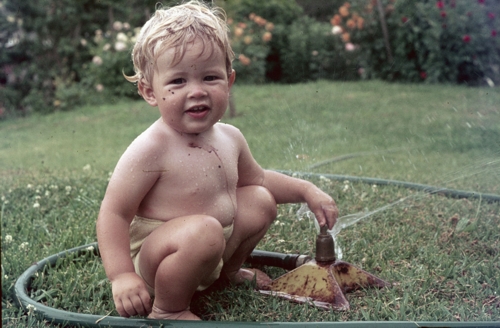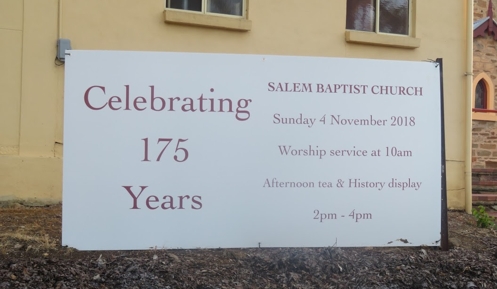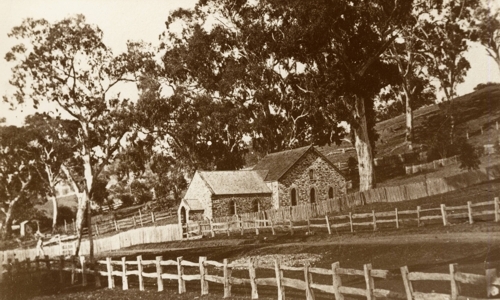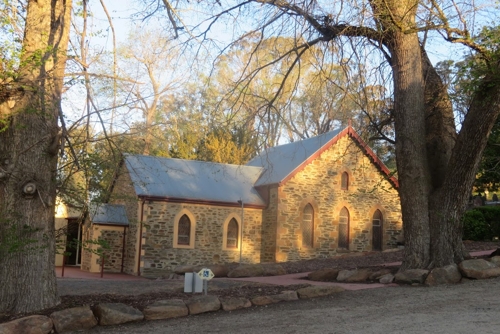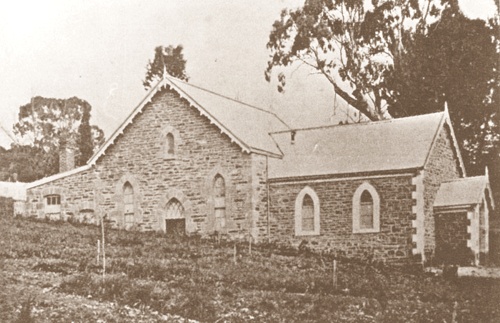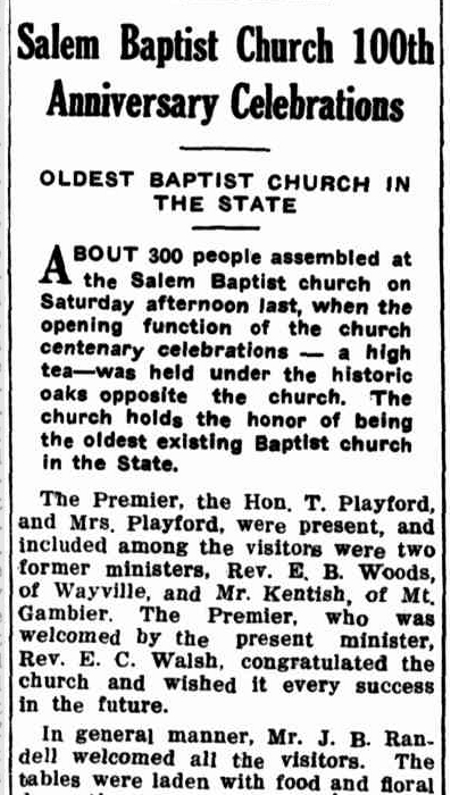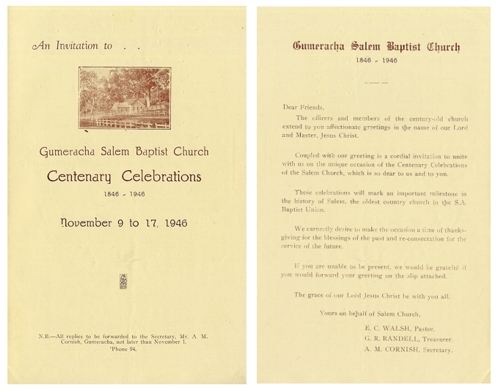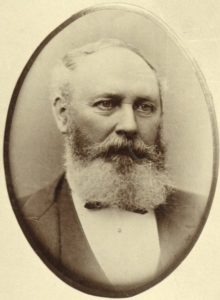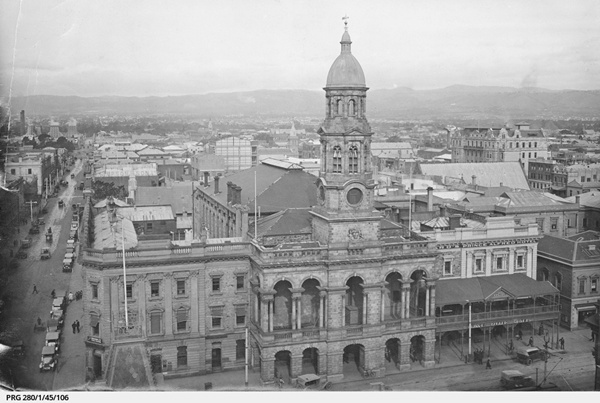Summertime Memories
While the temperature has been near record levels in my little corner of the world (in South Australia), recently, it’s made me, and probably everyone else in the state seriously appreciate our air conditioners. I have no idea how ancestors coped with 40C+ days without air conditioners? Serious kudos to them. They did it tough and they survived, and it reminds me of one of my all-time favourite genealogy quotes …
But also I’ve been thinking about Summertime and what we did when I was young. How many of these can you relate to?
—————
Firstly sprinklers were used to not only water the lawn, but were also a great way to keep kids occupied and cool, as they played in the water. But along with that there was plenty of clover and bees – which of course also resulted in beestings.
There was the slip’n’slide, do you remember that? That was cool, at least until too much dirt grit got on it, then grazed you as you slid down.
There was the little kiddy pool. That was well used, and when my bother and I got older my family got a bigger above ground pool. Summertime as a kid was pretty much spent in the pool!
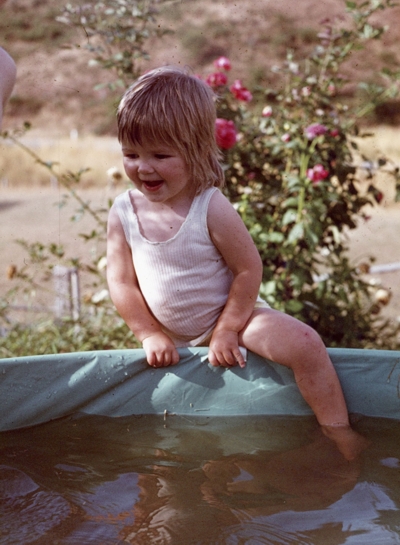
This is little Lonetester hopping into the kiddy pool. Brown water, but when you were used to dam water, this was clean in comparison!
And who remembers the black innertube rubber tyres? They were the best in the pool. There was none of the fancy plastic blow-up ones that are available these days.
Cordial or juice icy poles. You know the ones that were frozen in the tupperware iceblock moulds. If you’ve forgotten when they looked like, you can check them out here.
The days were filled with outdoor life. Bike riding to friends houses, playing in nearby creeks, or getting dropped at a friend or neighbours house for the day, particularly if they had a pool or dam. It was life back then.
Tadpoling. I was lucky enough to have a couple of creeks near my place, so when my friends and I weren’t in the pool or dam, we would go out and and catch tadpoles.
When you went to playgrounds, yes you burned your bum, because the slippery dip (along with every other piece of play equipment) was metal! None of this plastic stuff. But we survived.
On the rare occasion when you weren’t outside on a hot day, you were probably parked in front of the portable (what is now called “retro”) water cooler air conditioner. You know the ones on wheels, that you could wheel into a room, that was heaven on a hot day. Ours looked pretty similar to this one.
So that’s just a few of my Summertime memories. What are yours?
The Oldest Baptist Church in the State
“The oldest Baptist Church in the State” … that was the honour that was given to the Salem Baptist Church in Gumeracha, South Australia back in 1946, when the church celebrated it’s Centenary Anniversary.
And this weekend weekend the little church celebrated it’s 175th anniversary.
Before you all start commenting saying that the dates don’t match up, the beginnings of the church actually date back to 1843 when William Beavis Randell held church services in his barn at “Kenton Park”, Gumeracha. So it’s 175 years from this date.
Then in 1845 he donated land for the church, which was built and up-and-running by 1846.
Australia’s historical newspaper collection, Trove is once again a treasure of information and has a long report on their 100th Anniversary. You can read the full article here.
Not only that, we’re fortunate enough to have an original copy of the program from the 1946 anniversary service …
I have a lot of memories of relating to this church.
It’s where I went to church for many years. It’s where many family weddings were held, and it’s also were many family are buried.
I remember racing around the church (before the current hall was there), and falling over face-first in the mud in my “Sunday best” – my mum was not impressed! I remember the older ladies taking turns to bring flowers each week, and they always fretted about it. I remember the piles of fruit and veg stacked out front when it was Thanksgiving. I remember the Christmas concerts, and the special afternoon teas from time-to-time. I remember the regulars had ‘their seats’ at church, as well as their spots in the car park too.
But mostly I remember what a beautiful little church it was back then, and still is today – although I’m really not a fan of the new hall on the side. Because of where it is you can no longer see the 1846 date engraving on the church wall.
Do you have memories of the church? If so, feel free to leave a comment below.
Anyway I’m sure I’m not alone in being proud that my great great grandpa, William Beavis Randell played such an important role in it all.
Congratulations on 175 years Gumeracha Salem Baptist Church. Here’s to the next 175!!
RELATED POSTS:
William Beavis Randell: The Man Who Created a Town
Anecdotes, BDMs, Obits and Adverts – What Are These Records?
The Train, the Explosion, and the Parliamentarian
The year was 1890, and …
“a most painful accident, of a character unparalleled in the annals of railway accidents in this colony, if not in Australasia, occurred on the Northern line on Friday evening, Jan. 17. The terrible calamity which befel … was so sudden, and its effects so appalling, that the harrowing details were listened to with bated breath and unconcealed sorrow.”
That’s how the long article about the tragic death of well-known South Australian businessman and parliamentarian, Honorable James Garden Ramsay, M.L.C. begins.
James Ramsay was born in Edinburgh, Scotland in 1827, did an apprenticeship as an engineer at the St Rollox Ironworks in Glasgow, and then emigrated to South Australia in 1852. He established an agricultural implement and machine manufacturing plant at Mount Barker, which represented the starting point of what later grew into the largest business of its kind in the colony. Apart from his Mount Barker business, he opened up agricultural implement manufacturing businesses in Adelaide, Clare and Laura as there was a huge demand.
Anyway J.G. Ramsay’s interest in politics began in the 1860s, and in 1870 he entered Parliament for Mount Barker, and from then until his death he held various parliamentary positions. The article says …“Altogether he served over five years as a Minister of the Crown. As leader of the Legislative Council he exhibited considerable tact and ability, and possessing the confidence of his fellow members, he was eminently successful in conducting the business”.
Which then brings us back to Friday evening, 17 January 1890 when James Ramsay is travelling back to Adelaide, from Saddleworth, South Australia by train. Travelling with Mr Rounsvell (a fellow M.P.), who by the time the train reached Riverton left to go to the smoking carriage, after which Mr Ramsay fell asleep while reading the newspaper. The following is the report of what happened …
“The Hon. gentleman was left by himself, and he laid down on the seat, and after reading a newspaper fell asleep. Just before the train reached Stockport he was awakened by a loud report, which proved to be the bursting of the lamp, and in an instant he was all ablaze, the burning oil falling all over him. He tried to open the door of the carriage, but was unsuccessful, and it was not until the train arrived at Stockport that he was enabled to roll on to the ground in a terrible condition. Assistance was at once procured, and he was wrapped in a rug and some bags, the flames in this way being extinguished. It was then seen that Mr. Ramsay was in a very serious condition, and that he was suffering the most acute pain. Telegrams were dispatched to Gawler and Adelaide, and at the former place the sufferer was met by Dr. Popham, who advised his being conveyed on to Adelaide.”
Badly burnt, Mr Ramsay was met at the Adelaide train station by Dr Marten, his brother John Ramsay and a waiting ambulance.
“Dr Marten found him very much collapsed, suffering greatly from the shock. He was lying on the floor of the carriage, partially covered with rags, most of his clothes being burnt off. He was at once removed int he ambulance van the Patients’ Home on South-terrace, where his wounds were dressed by Dr. Marten. He still retained consciousness, notwithstanding the effects of the shock. The extent of the injuries were then ascertained, and the sufferings of the unfortunate gentleman must have been intense. He was burnt from head to foot, the skin being taken off from all parts with the exception of the head. His beard was completely destroyed, and his eyebrows and eyelashes singed. Te skin came off the left hand like a glove, the left having suffered more than the right, the burns extending up to the armpit. The injuries were greatest about the abdomen and the arms, though the whole body was badly burnt.”
His wife who was at Mount Barker at the time, was advised of the accident on Friday evening, and made her way to the city, reaching Adelaide by 5am on Saturday morning. However, sadly due to the severity of the burns, James Garden Ramsay passed away on Saturday 18 January 1890, at about 10.30am.
He was a migrant who certainly left his mark in South Australia in business, politics and the local community where he lived. This shows simply by the number of articles written in newspapers all around Australia about his death (over 8500. Yes, seriously!!).
Thanks to Trove, you can read the FULL article about the accident from the report in the Adelaide Observer, Saturday 25 January 1890, click here, and for further information, click on the links below.
More information:
James Garden Ramsay on Wikipedia
Read the Adelaide Observer article in full here
You can find details of the inquest here
His obituary is printed in the South Australian Register here
And for odles more articles on his death click here
The Duel in the City of Adelaide
A duel is something you associate with westerns. Two cowboys pacing it out on a dusty street before turning around, and drawing their guns as quick as possible. And usually the fastest one wins.
So when I found out that there was a duel in my hometown city of Adelaide, South Australia naturally I was intrigued, and had to check it out further.
There was no cowboys, or dusty streets, or tumbleweeds in this duel … (actually the streets may well have been dusty still at this stage), but certainly no cowboys or tumbleweeds. Instead we had politicians!
The two players in this duel are Charles Cameron Kingston, Q.C. & M.P., (1850-1908) and Richard Chaffey Baker, M.L.A. (1841-1911). The scene was the Adelaide Town Hall, on King William Street, Adelaide, and the time was 1.30pm, on Friday, 23 December 1892 … and it all started over name calling!
The Australian Dictionary of Biography sums up the who episode quite succinctly in the following paragraph …
“The most dramatic and colorful episode in Kingston’s political career occurred in 1892. After a prominent conservative member of the Legislative Council, (Sir) Richard Baker, denounced him as a coward, a bully and a disgrace to the legal profession, Kingston responded by describing Baker as ‘false as a friend, treacherous as a colleague, mendacious as a man, and utterly untrustworthy in every relationship of public life’. Kingston did not stop there. He procured a pair of matched pistols, one of which he sent to Baker accompanied by a letter appointing the time for a duel in Victoria Square, Adelaide, on 23 December. Baker wisely informed the police who arrested Kingston shortly after he arrived, holding a loaded revolver. Amidst widespread publicity he was tried and bound over to keep the peace for twelve months. The sentence was still in force when he became premier in June 1893.”
But the best description I’ve found of the whole saga (and there’s literally hundreds on Trove), is one from a Sydney newspaper, The Daily Telegraph, dated Saturday 24 December 1892 …
“Considerable excitement was caused in the city to-day when a rumor gained currency that Mr. C. C. Kingston, Q.C., M.P., had challenged Mr. R. L. Baker, M.L.C., to a duel over a feud which lately has been brought prominently before the public in Parliament and elsewhere. Many rumors are in currency with reference to the affair. As far as can be ascertained the facts are these.”
It goes on …
“A messenger called at Mr. Baker’s office in the city with a package and a letter from Mr. Kingston, which was stated to be “important” by the messenger. Mr. Baker was attending a meeting of the Queensland Mortgage Company, of which he is chairman of directors, and did not receive the communication till 1 o’clock. The letter asked Mr. Baker to meet Mr. Kingston in front of the Town-hall at 1.30 that day. The package accompanying the letter contained a revolver and cartridges. The police were communicated with on the matter; and Detective Kitson and Constable Rea awaited near the square at the time appointed. It is understood that Mr. Baker sent word to Mr. Kingston that he would attend as requested. At the hour named Mr. Kingston, with a six-chambered revolver, fully loaded, went to the square, where he was taken charge of by the officers of the law. It is stated that Mr. Kingston resisted the efforts of the police to secure possession of his revolver, and that Mr. Baker also kept his appointment. Mr. Kingston was detained at the police station for some time, and then released.”
The article goes into what provoked the reaction:
“The trouble arose as follows: Mr. Baker, in a letter to Sir Edwin Smith, which was read in tho Assembly, attacked Mr. M’Pherson and the Trades and Labor Council, whereupon Mr. Kingston severely criticised Mr. Baker’s conduct. Tho latter replied in the Council in a speech in which he stigmatised Mr. Kingston as a “bully and a coward,” and said that the Wheat Rates Committee had found him “guilty of untruth.”
Questions were later asked of Mr Baker as to why he declined taking part in the duel, the following article from the Wagga Wagga Advertiser, on 31 December 1892 explains his reasons
“I had two reasons,” continued Mr. Baker, ” for declining a meeting with Mr. Kingston. One was that, though I was not afraid of him, or of being shot by him, I was afraid of breaking the law and of either being hung for murder or sent to gaol for the rest of my life. Under these circumstances I left the matter entirely in the hands of the Government, in the full belief that the Government would vindicate the law. “
So, yes a duel was scheduled … but no, it never actually happened, thanks to the authorities being notified. But even so, what a sensation it caused. And if you want to read more about it, here’s a link to over 200 articles on Trove about it.

